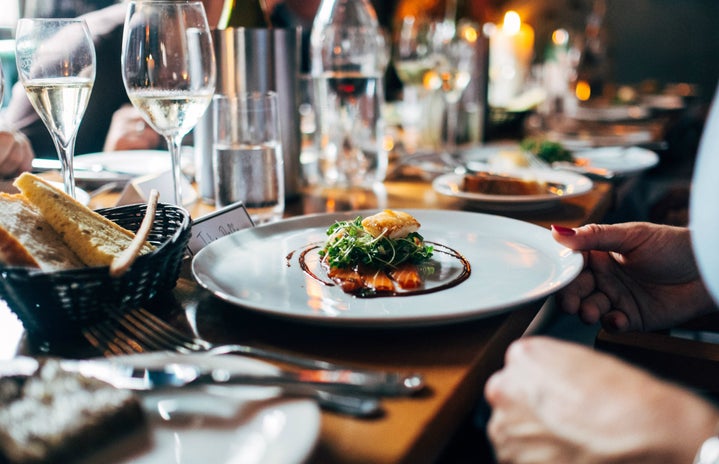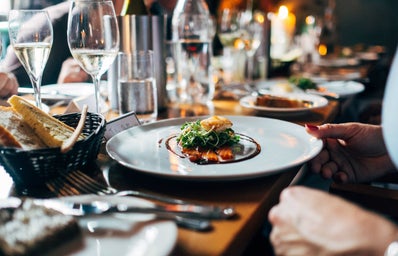Last year, the food media industry was in the hot seat for not allowing enough space for non-White voices at its tables. For far too long, the American food space has been dominated by White voices, but the vibrant food scene in the U.S. today would not exist if it wasn’t for non-White people.
Today we are highlighting six Black chefs who have shaped the food industry in the past or are making waves in this day and age. From Michelin-starred chefs to chefs-turned-activists, these figures are movers and shakers.
Leah Chase, chef at Dooky Chase
Leah Chase opened Dooky Chase in New Orleans with her husband in 1941 when it was still illegal for Black and White people to eat in the same restaurants. Chase is considered the Queen of Creole Cooking by a number of chefs and rightfully so. Dooky Chase was a place for people to come together during the Civil Rights Movement, and the kitchen still serves authentic Creole dishes like gumbo and jambalaya today. She left her mark on the food industry and American culture. “Food builds big bridges,” she said in 2018. “If you can eat with someone, you can learn from them, and when you learn from someone, you can make big changes. We changed the course of America in this restaurant over bowls of gumbo. We can talk to each other and relate to each other when we eat together.”
Edna Lewis, mother of Southern cuisine
Edna Lewis was the granddaughter of enslaved people who introduced Americans to the tradition of Southern cooking. As a young girl, she worked on her family’s farm in Freetown, Virginia, where she learned to cook with the ingredients that they grew. She began cooking professionally in New York City at Café Nicholson, which she opened with her friend John Nicholson in 1949. After she left the restaurant, her career continued to blossom. She wrote cookbooks, taught cooking classes and lectured at the American Museum of Natural History. In her lifetime she received a number of awards, like the James Beard Living Legend Award in 1999, and in the 80s she founded the Society for the Revival and Preservation of Southern Food which was a precursor for the Southern Foodways Alliance.
Omar Tate, founder of Honeysuckle in Philadelphia
Omar Tate founded a pop-up dinner series, Honeysuckle, that explores Black culture and people. Currently, he’s working to turn those dinners into a brick-and-mortar community center in West Philadelphia. The center will serve as a supper club, grocery store, meat market, and café/library. “I want to be able to walk into my supermarket and get high-quality food… I want to be able to go into a coffee shop in my neighborhood, where it’s beautiful and people are respected,” he told Food & Wine. “It’s all the things that I’ve desired for myself, that I’m just trying to bring to people because we all desire respect, dignity, and cleanliness.”
Mashama Bailey, Executive Chef and partner at The Grey in Savannah
Mashama Bailey got her start in restaurants in New York City, but now hails as executive chef and partner at The Grey in Savannah, Georgia. The restaurant was once a segregated Greyhound bus station, so a Black person running the show in the building was a big deal. Bailey was awarded a James Beard Award for Best Chef in the Southeast in 2019, and she’s the Vice Chairwoman of the Edna Lewis Foundation, which preserves the cuisine of the South. “My menu draws culinary parallels between the African diaspora and the Old and New Worlds,” she wrote. “By understanding what people’s traditions are, you’re able to explore Southern food in a far deeper way.”
Tunde Wey, founder of From Lagos
Tunde Wey hosts dinners across the nation that speak to bigger issues than, say, where the ingredients came from and making sure the customer feels comfortable in the dining space. To combat gentrification in Nashville, Wey hosted H*t Chicken Sh*t, “a project to sell hot chicken at extortionist prices to fund a community land trust in Black neighborhoods.” White diners had to pay a significant amount more for their meal than Black diners in an attempt to reverse the product of gentrification onto the gentrifier. “I’m doing all these projects asking White people to give something up,” he said in a GQ piece. “And I’m realizing they aren’t going to. White people will never give anything up.”
Mariya Russell, Chef de Cuisine at Kumiko and Kikko in Chicago
Mariya Russell is the first Black female chef to run a Michelin Star restaurant—Kikko, an omakase restaurant in Chicago. “You work so hard for 13 years, and then you get to this point and you’re like, ‘Oh, wow. All of that was for something.’ And being this person, doing this is really cool,” she said in 2019. Russell and her husband, who is also a chef, moved to Charleston from Chicago in pursuit of a slower lifestyle, but racism sent them back home to Chicago. Her first job upon returning to the Midwest was as a back server, even though she was used to cooking in the kitchen. It was the only open position, but a year later she was promoted to sous chef and then chef de cuisine of Oriole.


